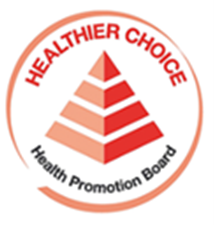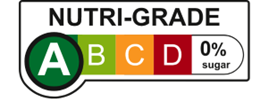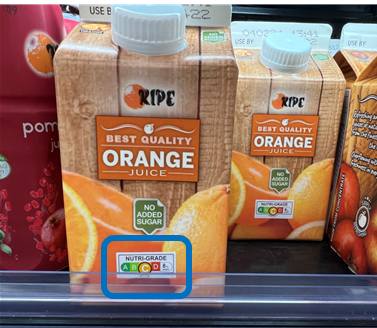FKII newsletter vol.5(Date 12/20/2023)
◆Contents◆
1. Health Promotion Policies and the Growing Need for Healthy Food in Singapore
----------------------------------------------------
1.Health Promotion Policies and the Growing Need for Healthy Food in Singapore
----------------------------------------------------
JETRO Singapore
In recent years, amid concerns over the aging of the population, rising health care costs, and the pressure on government finances, the Singapore government considers the improvement of people's lifestyles, such as diabetes prevention, as one of its important policy issues and is implementing a series of policies to raise health awareness among the general population. Among these, the government is particularly focused on diabetes prevention, as the prevalence of diabetes among Singaporeans (aged 20-79) in 2021 is 11.6%, which is higher than in the United States (10.7%), China (10.6%), Japan (6.6%), and other countries.
Government Measures
The following are three major food-related programs and regulations implemented by the government to help improve the health of its citizens.
The first is the "Healthier Choice Symbol (HCS)" logo program. Foods certified by the Health Promotion Agency (HPB) as effective in maintaining and promoting health can use this logo on their product packaging. The HCS program launched in 2001 to raise health awareness among the public, and currently more than 4,000 products have received the HCS certification. HCS-certified products can be found on the HCS product list on the Health Promotion Agency's website, and products from Japanese companies have also been certified. HCS certification is expected to have a certain impact as part branding within Singapore.

Healthier Choice Symbol logo
The second is the regulation of Partially Hydrogenated Oils (PHOs). In June 2021, the government banned the manufacture, import, and sale of foods containing PHOs, which contain high levels of trans fatty acids, to reduce the risk of lifestyle-related diseases. Since the intake of trans fatty acids in the general diet of Japan is considered to be low and there are no regulations in Japan, PHOs are sometimes contained in processed foods such as confectionaries. Please note that under this regulation, food products containing PHOs cannot be exported to Singapore.
The third is a regulation on the labeling of nutritional information on beverages (Nutri-Grade label). In December 2022, the government mandated the labeling of nutritional information according to sugar and saturated fat content for sweetened beverages sold at retail outlets and banned the advertising of some beverages as part of its efforts to combat diabetes. Under the new regulation, beverages are classified into four grades, A through D, in descending order of decreasing sugar and saturated fat content per 100 milliliters. Grade A beverages contain less than 1 gram of sugar and 0.7 grams of saturated fat, while Grade D beverages, the highest in sugar and saturated fat, contains more than 10 grams of sugar and 2.8 grams of saturated fat. The grade is based on either sugar or saturated fatty acid content, whichever is higher. Grades C and D must have a Nutri-Grade label (grade and sugar content) on the front of the package, and Grade D is prohibited from advertising in all media. In addition, this regulation will also start covering restaurants from December 30, 2023. The Nutri-Grade label has had a certain influence on consumer purchasing behavior, and as the regulation extends to food and beverage outlets, consumer awareness and interest is expected to increase further. Those who intend to sell beverages (especially Grades C and D) in Singapore in the future need to be aware of this issue.

Nutri-Grade label for Grade A, sugar-free beverages

Example of Grade C beverage labeling
The Need for Healthy Food
In Singapore, recent health promotion policies, coupled with COVID-19, an aging population and rising healthcare costs have led to a rapid increase in public health awareness. According to Statista, a German research firm, the Singapore vitamin and mineral market is estimated to be worth US$194.8 million in 2023 (+7.7% YoY), with a CAGR of 3.87% from 2023 to 2028. In addition, according to remarks made by the Singapore Minister of Health on World Diabetes Day 2021, the share of healthy food (products with HCS) in retail food sales has increased to 27%, 1.5 times more than five years ago, and one-third of restaurants offer health-conscious items on their menu.
Since many believe that the public's health consciousness will continue to rise and the market for healthy food will continue to grow, "health" may be an important perspective when exploring the potential for further expansion of Japanese food exports.
Finally, JETRO provides overseas information in various forms. For detailed information on healthy foods in Singapore, please refer to our research report published in March 2023. If you have any questions or concerns about overseas expansion, please contact your nearest JETRO office.
Reference Information
Health-Related Food in Singapore (March 2023)(* Written in Japanese)
https://www.jetro.go.jp/world/reports/2023/02/74dc32d015494f4b.html
----------------------------------------------------
Please visit the website of Field for knowledge Integration and Innovation (FKII) The Council of Industry-Academia-Government Collaboration.
https://www.knowledge.maff.go.jp/en/fkii.html
If you would like to inquire, publish your projects or unsubscribe from this e-mail newsletter, please contact us here.
Secretariat of Council of Industry-Academia-Government Collaboration
PwC Consulting LLC
E-mail:jp_cons_fkii_jimu@pwc.com
PLEASE DO NOT REPLY to noreply@fkii-jimu.com
----------------------------------------------------